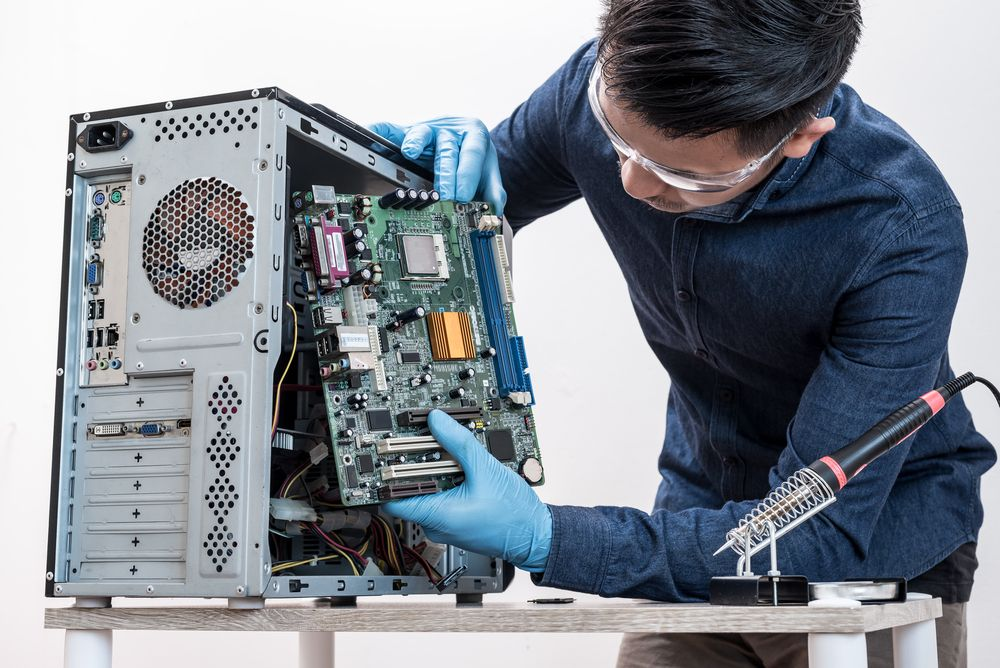When embarking on a PC building journey, selecting the right case is often an overlooked aspect. However, it plays a crucial role in the overall functionality, aesthetics, and future upgrade potential of your system. In this comprehensive guide, we'll delve into the various factors you should consider when choosing a case for your PC build, ensuring that you make an informed decision that aligns with your needs and preferences. Fusion hardwares is the only place where you can get every component for your computer.
Understanding the Importance of the PC Case
Protection and Cooling
The primary function of a PC case is to protect the internal components from physical damage and provide adequate cooling to ensure optimal performance. A well-designed case will have ample ventilation and airflow to prevent overheating and maintain stable operating temperatures for your components.
Aesthetics and Customization
Beyond functionality, the case also contributes significantly to the visual appeal of your build. With various sizes, shapes, and designs available, you have the opportunity to showcase your personal style and preferences. Additionally, many cases feature tempered glass panels or RGB lighting options for added customization and flair.
Expansion and Compatibility
The case should accommodate all the components you plan to install, including the motherboard, graphics card, storage drives, and cooling solutions. It's essential to ensure that the case has sufficient clearance, mounting points, and connectivity options to support your desired configuration. Additionally, consider future expansion needs and compatibility with upcoming hardware upgrades.
Factors to Consider When Choosing a PC Case
Form Factor
PC cases come in various form factors, including full tower, mid-tower, mini-tower, and small form factor (SFF). The form factor determines the size and compatibility of the case with different motherboard sizes and component configurations. Consider your space constraints and hardware requirements when selecting the appropriate form factor for your build.
Cooling Options
Effective cooling is crucial for maintaining optimal performance and prolonging the lifespan of your components. Look for cases with adequate airflow, fan mounting options, and support for liquid cooling solutions. Additionally, consider the placement of intake and exhaust fans, dust filtration systems, and cable management features to ensure efficient cooling and airflow throughout the case.
Expansion Slots and Drive Bays
Evaluate the number of expansion slots and drive bays available in the case to accommodate your desired configuration. Ensure that there are enough PCIe slots for your graphics card, additional expansion cards, and sufficient drive bays for storage drives, SSDs, and optical drives. Consider your storage needs and future expansion plans when selecting a case with the appropriate drive bay configuration.
Build Quality and Materials
Choose a case constructed from high-quality materials like steel, aluminum, or tempered glass for durability and longevity. Pay attention to the overall build quality, design aesthetics, and attention to detail, such as cable management options, tool-less installation features, and sturdy construction. Additionally, consider factors like noise dampening materials and vibration isolation mounts for a quieter and more pleasant computing experience.
Cable Management and Accessibility
A well-designed case should offer ample space and routing options for cable management to keep your build neat, organized, and free from airflow obstructions. Look for cases with strategically placed cable routing cutouts, tie-down points, and Velcro straps to streamline cable management and improve airflow. Additionally, consider the accessibility of ports, connectors, and components for easy installation, maintenance, and upgrades.
Conclusion
Choosing the right case for your PC build is a crucial decision that can significantly impact the functionality, aesthetics, and overall user experience of your system. By considering factors like form factor, cooling options, expansion capabilities, build quality, and cable management, you can make an informed decision that meets your specific needs and preferences. Whether you're building a high-performance gaming rig, a compact HTPC, or a workstation for professional use, selecting the perfect case will ensure that your build looks great, performs optimally, and remains future-proof for years to come





Comments